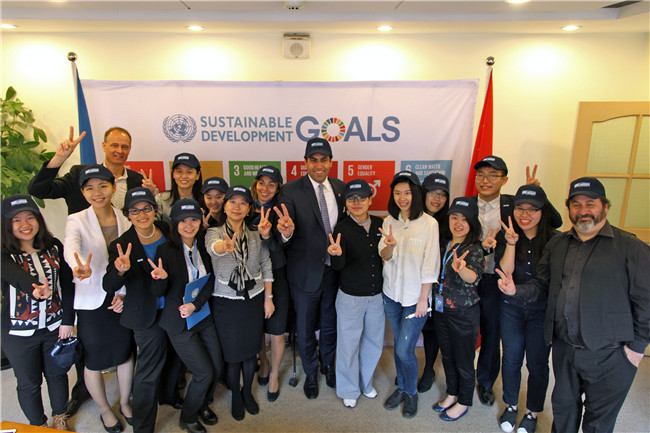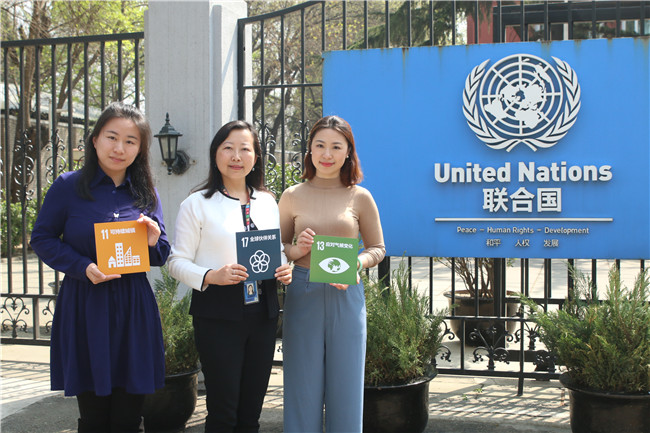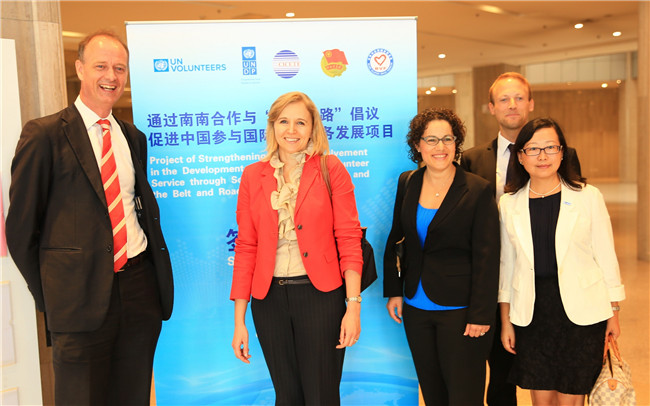International Organization Highlights Inclusiveness, Strong Execution and Good Communication Competences
China’s dramatic economic and social development has raised expectations in the international community that China will play a more dominant role in international affairs. For such expectations to be realized, China must create an effective strategy for cultivating talent. It is imperative that our nation develop an open and inclusive mechanism for developing and retaining world-class talent, individuals with the global vision to play leadership roles within international organizations like the United Nations. Thus, this edition of Royal focuses on the kinds of personalities and competencies most valued by leading international organizations and how education must be reformed to foster these qualities and skills.
This article is based an interview with Ms. Zhang Xiaodan, Project Director of the UNV (The United Nations Volunteers programme ) China Office, who shared with us the characteristics and requirements that international organizations look for in their personnel.

UN Envoy on Youth with UNV China office and UN volunteers- 2016
Royal: As the Project Director of the UNV China Office, please describe your daily routine.
Zhang Xiaodan: Working for UNV China, we need to keep in close contact with our headquarters in Bonn, German and the Asia-Pacific Office in Bangkok. My time is devoted to three major activities: One third of my time is devoted to answering to vast number of emails received from all over the world and communicating about a variety of issues with colleagues via phone and Skype. Another one third is spent participating in meetings, discussions with government and voluntary organizations related to implementation of UN projects and personnel recruitment for the UNV office. The remaining time goes to planning, recruiting, and coordinating the work of volunteers and project budgeting and capital management.
Royal: What are the particular values, personal qualities, and competencies sought by international organizations like the U.N?
Zhang Xiaodan: The staff of international organizations represents different nationalities, cultures, religions and customs. Embracing diversity in all its forms is crucial to effective teamwork in international organizations. The United Nations puts its beneficiaries first, and therefore its international staff must be able to develop clear goals and allocate the time and other resources required to achieve those goals.
Within international organizations, understanding one’s role within a multi-faceted project and taking responsibility for the completion of specific tasks is essential. Particularly when working in developing countries, international staff is required to identify key issues in a complex situation, understand needs and develop appropriate solutions quickly in the face of difficulties and challenges.
Within international organizations, strong collaborative skills are a necessity. Not only must international staff be able to work collectively with colleagues from different departments and regions, and a wide range of stakeholders, but they must genuinely value other people’s ideas and be willing to learn from them. They must be able to draw on the resources of the UN’s global network to establish cooperative, win-win solutions.
A combination of professional competence and a proven track record is highly valued by the United Nations. Reflecting on my experience recruiting Chinese youth volunteers over the past ten years, I think relevant work experience, excellent English proficiency, and good communication skills are essential to competing effectively for highly coveted international positions.

UN Chinese Youth Volunteer deployment-2017
Royal: What advice would give to educators and educational policy makers on cultivating world-class talent?
Zhang Xiaodan: Based on my experience in recruiting volunteers for the United Nations, I suggest the importance of cultivating an inclusive frame of mind, preparing students to be able to work collaboratively with different people and stakeholders, and instill a respect for diversity. Young people should be encouraged to embrace education both as a source of knowledge and for all-round development. They should also be urged to take the initiative to participate in international activities where they have the opportunity to develop their social and communication skills. Finally, young people should also learn the importance of modesty and diligence.
Teamwork is also essential within international organizations. Team members in international organizations must genuinely value other people’s ideas and expertise and be willing to work collectively towards a common goal.
We should take a leap of faith in our young people, as they have the fresh new vision and vitality that UN development projects need if they are to succeed.

UNV and UNDP delegation for China volunteering project signing ceremony-2016
Royal: As China’s international status has risen, how can we encourage more Chinese youth to assume leadership roles within international organizations?
Zhang Xiaodan: The United Nations and China have for a long time encouraged young people to participate in international affairs. Particularly in recent years, China has made great efforts in promote South-South cooperation. UNV also takes advantage of the Belt and Road Initiative to offer platforms for Chinese youth to participate in South-South cooperation projects.
This year, through our work with the Beijing Volunteer Service Federation on the 3rd joint volunteer initiative, we have sent two outstanding Chinese young people to Thailand and Burmese to work in their UNV offices.
We earnestly invite more Chinese young people to join us, to contribute their talent and knowledge to cultural and educational exchanges among developing countries, to have a greater voice on the global stage, and to play an active role in International Cooperation under the UN’s multilateral framework.


